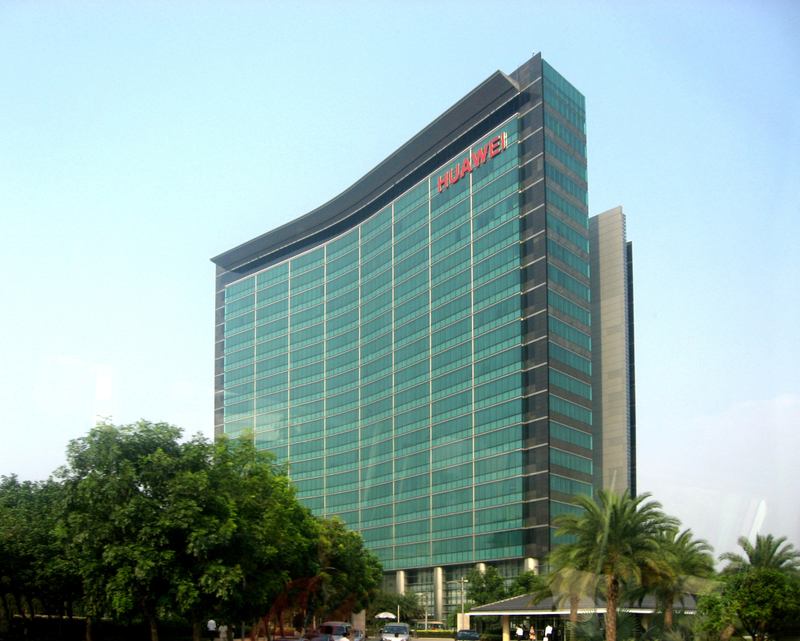Do Patents Protect National Security?
On June 12, the Wall Street Journal broke the story that Chinese firm Huawei Technologies Co. had asserted more than 200 patents against Verizon Communications Inc., reportedly demanding more than $1 billion in licensing fees. On its face, this would seem to be a private patent dispute.

Published by The Lawfare Institute
in Cooperation With

On June 12, the Wall Street Journal broke the story that Chinese firm Huawei Technologies Co. had asserted more than 200 patents against Verizon Communications Inc., reportedly demanding more than $1 billion in licensing fees. On its face, this would seem to be a private patent dispute. But, in fact, it is an important turn of events for national security: The Verizon-Huawei dispute contradicts a view espoused by many experts, and even the Trump administration, about the relationship between national security and intellectual property rights such as patents.
For some time now, Huawei has been caught in the crosshairs of national security experts and the Trump administration. The company has its own tag on Lawfare and has earned the ire of the administration many times over.
Though the primary concern about Huawei involves cybersecurity vulnerabilities, the so-called race to 5G raises questions as well. Next-generation 5G mobile network technology will have far-reaching applications creating national-scale advantages—including military and cyber-warfare advantages. The worry, then, is that Huawei—as the spearhead of China’s 5G development—could outpace the United States, thereby creating a national security threat.
This relationship between 5G and national security has shaped the predominant narrative on intellectual property and national security so far. Patents, as government grants of exclusivity over technological inventions, are intended to reward inventors and encourage innovation in areas such as 5G. To the extent that patents promote 5G, which in turn promotes national security, the conclusion is that patents promote national security.
Many observers have emphasized the importance of this connection between patents and national security, including former Patent Office Director David Kappos, who stated that “a policy disincenting innovation and investment in these technologies could pose a national security threat.” Even some in the Trump administration have highlighted the necessity of patents to advance 5G and thus promote national security. The Department of Justice, for instance, interposed itself in the Federal Trade Commission’s lawsuit against Qualcomm Inc., arguing against remedies that could limit the semiconductor firm’s patent licensing practices on the grounds that “there is a plausible prospect that an overly broad remedy in this case could reduce competition and innovation in markets for 5G technology.” Additionally, the 2018 Committee on Foreign Investment in the United States’s (CFIUS’s) refusal of Broadcom Ltd.’s attempt to buy out Qualcomm explicitly relied on the ties among 5G, patents and national security. The CFIUS report noted that “Qualcomm’s current business model is based on licensing of patented Qualcomm technologies” and that changes to that model would be “of national security concern.” Why? Because in the CFIUS’s view, cutting back on Qualcomm’s patent licensing would harm domestic 5G development, leading to “a shift to Chinese dominance in 5G [that] would have substantial negative national security consequences.”
Yet this logic—that strong patent protection yields 5G and, therefore, national security—suffers a fundamental flaw, as exemplified by the Verizon-Huawei situation: Chinese firms can also obtain U.S. patents and exploit them against American firms. The Agreement on Trade-Related Aspects of Intellectual Property Rights (TRIPS agreement), to which the United States and China subscribe, prohibits countries from discriminating between foreign and domestic patent applicants. In fact, Chinese inventors obtained 12,600 U.S. patents in 2018—a 12 percent increase from 2017. Huawei alone reportedly holds more than 56,000 patents worldwide. By one count, Huawei has more patents essential to 5G than all U.S. firms combined. And, as Huawei correctly points out in its response to its critics, patent licensing negotiations among global firms are commonplace; the Chinese firm’s demand letter to Verizon was not out of the ordinary as far as patent licensing dynamics go.
Yet with respect to national security, a U.S. patent held by a foreign firm and asserted against an American company could do substantial harm. Courts can, and frequently do, enjoin firms from using certain technology in the course of patent litigation, even if the allegedly infringing firms emerge victorious in the end. Such injunctions could set the United States back by years in 5G development. (Patent tribunals are supposed to consider the public interest before entering injunctions, but they often have been dismissive of concerns like national security.) More troublingly, the toll of litigation alone can drag down innovative efforts. In fact, Qualcomm’s extensive litigation campaign and resulting settlement with Apple reportedly caused Intel’s recent exit from 5G chip development. The United States lost a key 5G player, no doubt benefitting Huawei and China.
Increasing the powers of patent rights, then, does not guarantee greater national security, as foreign firms enjoy those same powers and can wield them against American companies.
If patents—in some situations—can harm national security rather than help it, the natural question is whether there are policies that can prevent that harm. The obvious approach, proposed recently by Sen. Marco Rubio, is to put up roadblocks for undesirable foreign patent holders. That approach could address the immediate issue Verizon faces, but it must sidestep the TRIPS agreement, and it likely underestimates the ability of foreign patent holders to shield their activities through orchestrated patent deals (a practice that some observers call “patent privateering”).
The better approach would be to reassess the role of patents in national security as a general matter. As I have explained with respect to cybersecurity, patents can drive better technology, but so can free-market competition. China itself tends to promote 5G and other innovation by pouring resources into new firms, not by expanding patent exclusivities. The United States similarly could invest in a national 5G strategy designed to help startups and competitive companies. But before that conversation occurs, the administration and the expert community need to break out of the current paradigm of patents protecting national security. With any luck, the Verizon-Huawei situation will help them to do so.





